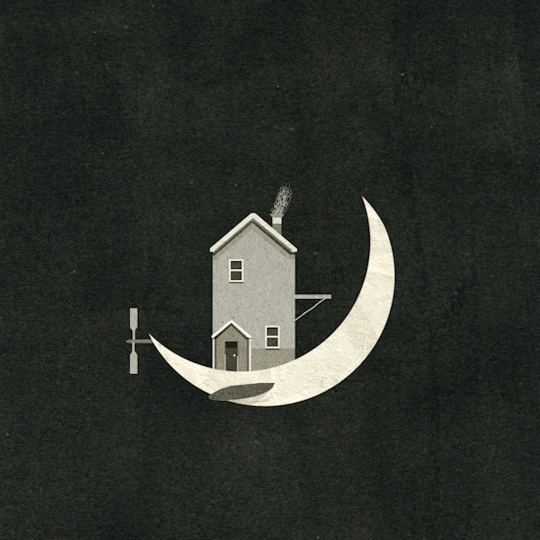Text
When I panic
It's always about death
It never masquerades
As a fear of failure
Because my expectations are so high
That failure and I are old buddies.
I'm not saying I don't have issues with failure
But a random panic attack spurred by failure
Is quite rare.
But, wait, public humiliation
Is probably a fear of failure.
And that's definitely a thing
That I do.
But that's not what this is about.
So let's revisit that at a later time.
So death
And the physical unraveling
The pain and humiliation associated with
The ultimate vulnerability
(I'm actually realizing that I am SO afraid
Of public humiliation
That if I were to choke in a public space
I'd probably be so embarrassed that I'd try
To hide it
And die
A quiet
Choking
Death)
But anyway
My tips for not freaking out
About
Death
Are as follows
Say to yourself
If I die,
Let me die in
(What ever your ideal situation of death may be)
(Mine is in my bed
Surrounded by family
Telling me how good of a job I did
And how death is going to be pretty cool
And maybe like a carnival
But a carnival with shady enclaves
Lined with comfy cots
And my favorite music
And my favorite types of quiet)
Then, just in case,
give yourself a second best death
Like,
If I can't die in shady, quiet, yet entertaining carnival
Let me die in an Ikea.
Just marveling at the selection
And the vignettes
And the way finding.
And if that isn't possible
I'll take my third choice.
Let me die eating a delicious sandwich.
2 notes
·
View notes
Link
By ROXANE GAY
It can be very difficult to separate the art from the artist. In the case of Roseanne Barr and her critically acclaimed television show based on her life, it is nearly impossible. I wasn’t going to watch the reboot because I find Ms. Barr noxious, transphobic, racist and small-minded. Whatever charm and intelligence she brought to the first nine seasons of her show, a show I very much loved, are absolutely absent in her current persona, particularly as it manifests on Twitter. She is a supporter of Donald Trump, vocalizing her thoughts about making America great, claiming that with her vote, she was trying to shake things up. She tweets conspiracy theories, rails against feminism and shares Islamophobic opinions.
Where once she was edgy and provocative, she is now absurd and offensive. Her views are muddled and incoherent. She is more invested in banal and shallow provocation than engaging with sociopolitical issues in a thoughtful manner. No amount of mental gymnastics can make what Roseanne Barr has said and done in recent years palatable.
Nonetheless, I was curious about what Roseanne Conner, her famous television alter ego, has been up to. The original “Roseanne” was a smart, hilarious and groundbreaking show that covered a lot of important ground in prime-time television. I wanted to see how the Conners were doing 20 years later.
What I found is that the tensions in the TV show — which more than 18 million people watched, a network TV high since 2014 — are the same tensions that shape this current political climate. Roseanne the character voted for Donald Trump because he talked about “jobs.” For that she sacrificed so many other things. The promise of jobs and the myth of the white working class as the only people struggling in this country, which animates so much of our present political moment, are right there, in this sitcom.
In many ways, the first two episodes of the “Roseanne” reboot are excellent. It is difficult to admit, but nearly everything about the production is competent. There is the familiarity of the Conner house, still well-worn, the iconic couch taking center stage in the family room. The original cast returned and their faces are pleasantly familiar — though not as aged as they could be, given the benefits of wealth, good skin-care regimens and, perhaps, medical intervention.
Darlene, the middle daughter, has moved back home with her two children, Harris and Mark, the latter of whom is gender nonconforming. D.J., the Conner son, was in the Army and has recently returned home from a tour in Syria. His wife, we learn indirectly, is still in the military, serving abroad, and D.J. is raising their daughter, who is black, while she is away. Roseanne and her sister, Jackie, played by Laurie Metcalf, have been estranged for a year because of the 2016 election, and when Jackie shows up, she’s wearing a “Nasty Woman” T-shirt and a pink pussy hat. Of course she is.
The Conners are still dealing with many of the economic struggles they have always faced. Darlene has lost her job. Roseanne and Dan are getting older and, like many Americans, cannot afford adequate health care as they try to share various medications. Becky, the oldest Conner child, is going to become a surrogate and sell her eggs to make $50,000. Darlene’s son, Mark, is being bullied at school for his gender presentation. The show isn’t shying away from difficult topics, and that is both what works and doesn’t. The Conners are portrayed as a typical working-class family and their problems are relatable, but it also feels as though the show is working through a checklist of “real issues” it wants to address, to demonstrate how the Conners are a modern American family.
The presence of D.J.’s daughter, Mary, is particularly awkward. When she appears, one of these things is clearly not like the other, but the show makes no mention of it as if to suggest how at ease the Conners are with difference. But Mary has no lines and very little camera time. We are given little information as to how she became part of the Conner family and what life for her is like in a small, predominantly white Illinois town where everyone, seemingly, voted for Donald Trump. Young Mary is just there, a place holder, tokenized and straining the limits of credulity.
When a lot of the mainstream media talks about the working class, there is a tendency to romanticize, to idealize them as the most authentic Americans. They are “real” and their problems are “real” problems, as if everyone else is dealing with artificial obstacles. We see this in some of the breathless media coverage of Trump voters and in a lot of the online chatter about the “Roseanne” reboot. What often goes unsaid is that when the working class is defined in our cultural imagination, we are talking about white people, even though the real American working class is made up of people from many races and ethnicities.
During a Television Critics Association panel promoting the show, Ms. Barr said, “it was working-class people who elected Trump.”
This myth persists, but it is only a myth. Forty-one percent of voters earning less than $50,000 voted for Mr. Trump while 53 percent voted for Hillary Clinton. Forty-nine percent of voters earning between $50,000 and $100,000 voted for Mr. Trump while 47 percent voted for Mrs. Clinton. The median income of these voters was $72,000, while the median income of Hillary Clinton voters was $61,000. A significant number of middle-class and wealthy white people contributed to Trump’s election.
In the show, during an exchange about their political disagreement, Roseanne tells Jackie one of the reasons she voted for Mr. Trump is because he “talked about jobs.” And that was all the political ideology we got. If we are to believe the circumstances of this character’s life, a few vague words about “jobs” was more than enough to compel Roseanne, with inadequate health care, with vulnerable grandchildren, and struggling to make ends meet, to vote for Mr. Trump.
How do you reach people who make dangerous political choices grounded in self-interest? When Roseanne and Jackie finally reconcile, Roseanne never apologizes or concedes. She merely tells Jackie, “I forgive you,” and Jackie acknowledges how hard that was for Roseanne. Clearly, we cannot reach people who make dangerous, myopic political choices. We concede, as Jackie does, or we resist, as hopefully the rest of us will.
In my book “Bad Feminist,” published in 2014, I wrote about giving myself permission to be flawed but feminist. I wrote about how sometimes I consume problematic pop culture, knowing I shouldn’t, knowing how harmful that pop culture can be. I still believe there is room for that, for having principles and enjoying things that challenge those principles. But in the ensuing years, I’ve also been thinking about accountability and the repercussions of our choices. I’ve been thinking about how nothing will change if we keep consuming problematic pop culture without demanding anything better.
As I watched the first two episodes of the “Roseanne” reboot, I thought again about accountability. I laughed, yes, and enjoyed seeing the Conner family back on my screen. My first reaction was that the show was excellent. But I could not set aside what I know of Roseanne Barr and how toxic and dangerous her current public persona is. I could not overlook how the Conner family came together to support Mark as he was bullied at school for his gender presentation, after voting for a president who actively works against the transgender community. They voted for a president who doesn’t think the black life of their granddaughter matters. They act as if love can protect the most vulnerable members of their family from the repercussions of their political choices. It cannot.
This fictional family, and the show’s very real creator, are further normalizing Trump and his warped, harmful political ideologies. There are times when we can consume problematic pop culture, but this is not one of those times. I saw the first two episodes of the “Roseanne” reboot, but that’s all I am going to watch. It’s a small line to draw, but it’s a start.
0 notes
Text
Fun?
Is it possible to have fun with someone who questions your every move? Let loose cheetahgram.
0 notes
Text
Is misogyny just projected self hate? They hate hair, assertiveness, confidence, power. All supposed masculine traits. Is insomnia just me being afraid to sleep? What if I die peaceful? Or not. But why can't I embrace OR give up the day?
0 notes
Text
My my my my media review: pt 1
A. I’m bummed as fuck about the Roseanne redux. I am a Roseanne junkie. I loved progressive Roseanne and I liked her meanness towards those who slighted anyone she deemed worthy (which used to be all humans who aren’t bullshit). But now she has inhaled the alt right and is producing the inevitable product of them; the alternative to right: wrong. B. I’ve given my husband 11 more days to finish the original Twin Peaks before I watch without him. So please no spoilers. C. Game of Thrones feels like an escape now. Can’t wait for new episodes. D. In the only happy news of the day, this band. All our new war cry. You got a problem with me? Who me? You got a problem with little ol’ me?
https://m.youtube.com/watch?v=GF4H16S6MhU
0 notes
Photo

Isn’t it amazing how I can feel bad and look so good?
All 7 seasons now streaming on Hulu.
Art by Tumblr Creatr Alex Fine.
4K notes
·
View notes












